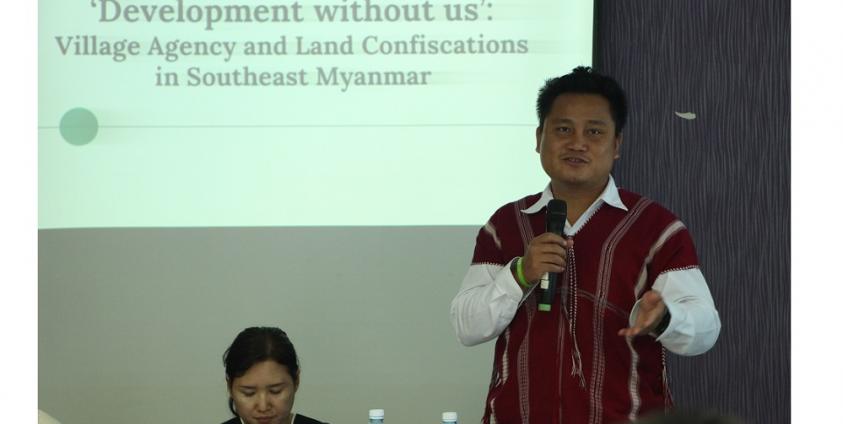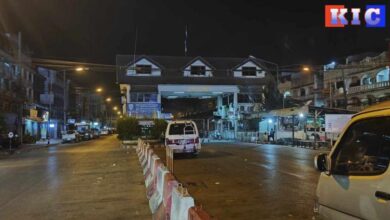Most of Seized Lands aren’t Paid Compensation under Development Projects, KHRG says

No compensation has been given to most of the villagers whose lands have been seized for development projects in southeastern Burma, the Karen Human Rights Group (KHRG) said.
The KHRG made this claim during a launching ceremony of its report titled ‘Development without us’, which was held at the Thai-Burma border on September 18.
“We’ve clearly stated that most of the public haven’t received land compensation. The development projects use a lot of lands but only a few projects have given some compensation,” Saw Way Lay, spokesperson of the report, said to Karen News.
Even when land compensation was given, the villagers were forced to accept it in fear due to pressures and threats from local government authorities, the military, and armed organizations, he continued.
The ‘Development without us’ report is published in Karen, English, and Burmese and contains five chapters and over 100 pages. The report highlights the situation of human rights violations that result from land confiscations by development projects in southeastern Burma from 2015 to 2018.
“Many development projects entered after 2012. We are projecting the voices of ethnic people, who have been neglected and suffer from human rights violations after the entry of[the development projects],” said Naw Htoo Htoo, program director of the KHRG.
These development projects include a large-scale mine, coal-fired power plant, a Chinese city project for Chinese entrepreneurs, an industrial zone, a large-scale agriculture industry, a hydropower project, construction, and a road construction project and lands are being seized for these projects, according to the KHRG’s report.
“Whether it is the government, the mother organization (KNU), or civil society organizations (CSOs), everyone must cooperate to resolve the issue of the development projects violating the rights of local residents. Although development projects are important, it’s important not to affect the public’s livelihood and areas during the implementation [of the projects],” said Naw Alice from the Karen Women Organization, who attended the report launching ceremony.
In the report, the KHRG has called on the KNU and the government to protect the complainants and the CSOs that are acting on behalf of the land confiscation victims, calculate fair compensation for the villagers, and have transparency.
Founded in 1992, the KHRG is an independent organization that engages in report-writing based on documentation of human rights violations, which are faced by local residents, and raising public awareness on issues relating to the protection of human rights. This is the organization’s third report on land confiscation.




